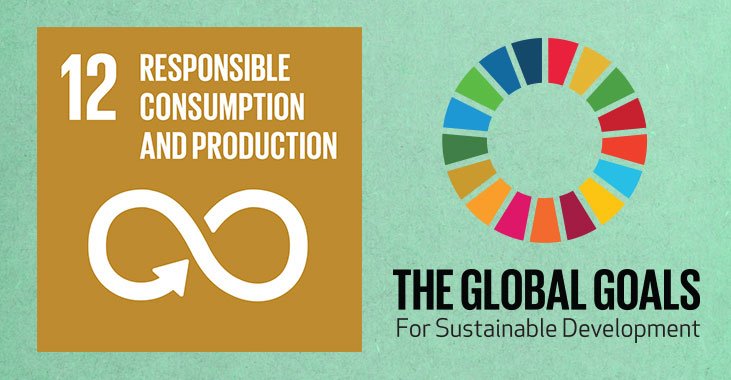|
Kabita Poudel Agriculture and Forestry University (Top 5 entries ) |
 |
|
|
||
 As a child, I grew up in mid hill of Nepal, where every household had a small piece of land by their house to grow vegetables for home consumption, one or more fruit trees, few goats, one or two buffaloes, a pair of bullocks to plow their field, few fowls and a field a little far away where they used to grow rice during rainy season. Subsistence farming was dominant. This was the scenario before 12-15 years before. Then came the new technologies, the agrochemicals, machineries, etc. The wave of commercialization hit my village as well. Forests were cleared, agrochemicals were poured into the soil, tube-wells were dug up. The resources were extensively exploited. The production of first few years lured everyone, but eventually soil lost its productivity and became toxic, cleared fields in sloppy areas suffered erosion and landslide and water resources couldn’t even quench the thirst of villagers. The necessary but unplanned commercialization led to rapid destruction of forests, haphazard use of agrochemicals, overuse of water sources thereby resulting in the decreased ground water table, and disturbance in natural ecosystem which drastically reduced agricultural productivity and most of the people stopped working in the fields. Then, there came the hunger and poverty along with it. That hasty and unplanned decision proved to be more curse than boon to my village. It not only disturbed the natural and economic environment but also disrupted homes and families due to poverty. And now, the citrus orchards where I used to play hide and seek are no more… the lands are left barren with no any soul wanting to cultivate and grow crops in them.
As a child, I grew up in mid hill of Nepal, where every household had a small piece of land by their house to grow vegetables for home consumption, one or more fruit trees, few goats, one or two buffaloes, a pair of bullocks to plow their field, few fowls and a field a little far away where they used to grow rice during rainy season. Subsistence farming was dominant. This was the scenario before 12-15 years before. Then came the new technologies, the agrochemicals, machineries, etc. The wave of commercialization hit my village as well. Forests were cleared, agrochemicals were poured into the soil, tube-wells were dug up. The resources were extensively exploited. The production of first few years lured everyone, but eventually soil lost its productivity and became toxic, cleared fields in sloppy areas suffered erosion and landslide and water resources couldn’t even quench the thirst of villagers. The necessary but unplanned commercialization led to rapid destruction of forests, haphazard use of agrochemicals, overuse of water sources thereby resulting in the decreased ground water table, and disturbance in natural ecosystem which drastically reduced agricultural productivity and most of the people stopped working in the fields. Then, there came the hunger and poverty along with it. That hasty and unplanned decision proved to be more curse than boon to my village. It not only disturbed the natural and economic environment but also disrupted homes and families due to poverty. And now, the citrus orchards where I used to play hide and seek are no more… the lands are left barren with no any soul wanting to cultivate and grow crops in them.
This is the story of not only my village but of most of the places of the world. It depicts the situation of agriculture sector only. Other production sectors like industries are not left untouched by such unsustainable practices.
Although the mass production habits and industrialized food system eliminated the chances of food shortages, the huge processing results in lowering the quality and nutritive value of food, skyrocketing food prices, depletion of non-renewable sources like fossil fuels, use of nuclear energy, etc. causing degradation of health of people and the environment, and contribute to the climate change and global temperature rise. In addition to this, the heavy use of machineries and improved technologies resulted in the shift from human labor to machine labor whose ultimate legacy is increased unemployment and extreme poverty among the marginalized groups.
It’s irony that while a part of the world is suffering from obesity, diabetes, antherosclerosis etc., the other part is suffering from hunger, malnutrition, deficiency diseases, etc. There is heavy consumption and subsequent food wastage in western societies while there is deprivation of food in the African countries like Somalia, Ethiopia and other poor nations.
Sustainable production refers to the processes that generate the end products and resources that ensures efficient, economical and sustainable utilization of energy and natural resource. In sustainable consumption, products are consumed in such a way that they meet the needs of consumers and contributes to their improvement in their quality of life and at the same time, safeguard the future generations’ right to live healthily and happily.
It’s no doubt that, the way we produce and consume material resources determine the survival of ecosystem and human livelihood. And it is a cruel truth that our activities are imposing a heavy burden on the earth’s carrying capacity. So, it’s hightime that we analyze cost and benefits associated with any production or consumption habit and consider the production and consumption patterns that prevent detrimental use of natural resources and cautious use of toxic materials.
Sustainable production and consumption is a prerequisite in the world wide struggle against sustainability challenges like climate change, famine and environmental pollution. Sustainability can be attained via rational use of resources and minimization of waste and pollution, use of renewable resources within their capacity of renewal, both an increase in efficiency of consumption as well a consideration of production and consumption patterns that enhance the improvement of environment.
So, immediate actions are due necessary. Agricultural production patterns must consider and mitigate the dangers associated with application of chemical fertilizers, insecticides and pesticides on the ecosystem.Technological innovations and its consequent application in the production and consumption process must contribute to environmental stewardship and meet the basic needs of all people including youth, by making food water and energy more accessible and affordable to those living in poverty. Individual consumers also play a key role in ensuring eco friendly activities. There is need of policies that promote the cleaner production in today’s world so that it will be helpful in sustainable food production. The United Nations conference on Environment and Development (UNCED) held in 1992 established the concept of sustainable production and consumption in Chapter 4 of agenda 21, which is a praiseworthy initiative in this regard.
While we are concerned with the overuse of resources, there are some underutilized resources which can play role in maintaining sustainability over available resources. Investing in sustainable production creates new opportunities and help ensure the social inclusion of all persons in their societies everywhere. Change in production pattern also have the potential to contribute to eradication of poverty. Sustainable development and creations of conditions that allow for a transition into green economy often provide new impetus for economic growth and a higher proportion of spending allocated to social development increasing health care and education. The combined positive impact of sustainable production and consumption on energy use and consumption will greatly benefit those people and places that are vulnerable to harmful environment and conditions.
So, today’s world is demanding for the maintainence of sustainability over production and consumption mechanisms so that we don’t have to wake up everyday, hearing about those malnourished children in severe condition, of those pregnant mothers who die due to lack of proper nutrition and of those little souls who die along with them.
Thanks!!!!!!!!!!!!

One thought on “Eradication of Poverty through Sustainable Production and Consumption”